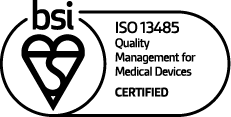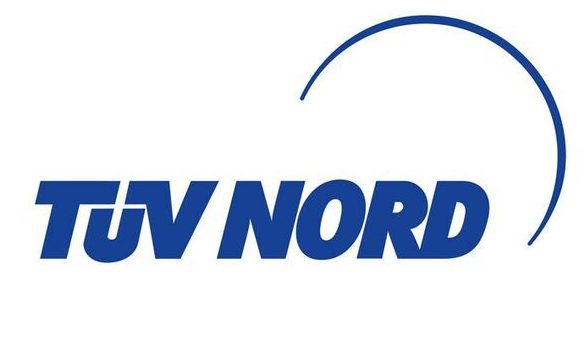Introduction
The General Data Protection Regulation 2016 replaces the EU Data Protection Directive of 1995 and
supersedes the laws of individual Member States that were developed in compliance with the Data
Protection Directive 95/46/EC. Its purpose is to protect the “rights and freedoms” of natural persons
(i.e. living individuals) and to ensure that personal data is not processed without their knowledge,
and, wherever possible, that it is processed with their consent.
Why this policy exists
To set a standard by which Evac+Chair International will comply with GDPR legislation and lay down
how Evac+Chair International interprets GDPR in the context of the work we do.
Policy scope
All processing of personal data by Evac+Chair International is within the scope of this procedure.
Introduction
1.1 Definitions used by the organisation (drawn from the GDPR)
Material scope (Article 2) – the GDPR applies to the processing of personal data wholly or
partly by automated means (i.e. by computer) and to the processing other than by automated
means of personal data (i.e. paper records) that form part of a filing system or are intended to
form part of a filing system.
Territorial scope (Article 3) – the GDPR will apply to all controllers that are established in the
EU (European Union) who process the personal data of data subjects, in the context of that
establishment. It will also apply to controllers outside of the EU that process personal data in
order to offer goods and services, or monitor the behaviour of data subjects who are resident
in the EU.
Article 4 definitions
Establishment – the main establishment of the controller in the EU will be the place in which
the controller makes the main decisions as to the purpose and means of its data processing
activities. The main establishment of a processor in the EU will be its administrative centre. If
a controller is based outside the EU, it will have to appoint a representative in the jurisdiction
in which the controller operates to act on behalf of the controller and deal with supervisory
authorities.
Personal data – any information relating to an identified or identifiable natural person (‘data
subject’); an identifiable natural person is one who can be identified, directly or indirectly, in
particular by reference to an identifier such as a name, an identification number, location data,
an online identifier or to one or more factors specific to the physical, physiological, genetic,
mental, economic, cultural or social identity of that natural person.
Special categories of personal data – personal data revealing racial or ethnic origin, political
opinions, religious or philosophical beliefs, or trade-union membership, and the processing of
genetic data, biometric data for the purpose of uniquely identifying a natural person, data
concerning health or data concerning a natural person’s sex life or sexual orientation.
Data controller – the natural or legal person, public authority, agency or other body which, alone
or jointly with others, determines the purposes and means of the processing of personal data;
where the purposes and means of such processing are determined by Union or Member State
law, the controller or the specific criteria for its nomination may be provided for by Union or
Member State law.
Data subject – any living individual who is the subject of personal data held by an organisation.
Processing – any operation or set of operations which is performed on personal data or on sets
of personal data, whether or not by automated means, such as collection, recording,
organisation, structuring, storage, adaptation or alteration, retrieval, consultation, use,
disclosure by transmission, dissemination or otherwise making available, alignment or
combination, restriction, erasure or destruction.
Profiling – is any form of automated processing of personal data intended to evaluate certain
personal aspects relating to a natural person, or to analyse or predict that person’s performance
at work, economic situation, location, health, personal preferences, reliability, or behavior. This
definition is linked to the right of the data subject to object to profiling and a right to be
informed about the existence of profiling, of measures based on profiling and the envisaged
effects of profiling on the individual.
Personal data breach – a breach of security leading to the accidental, or unlawful, destruction,
loss, alteration, unauthorised disclosure of, or access to, personal data transmitted, stored or
otherwise processed. There is an obligation on the controller to report personal data breaches
to the supervisory authority and where the breach is likely to adversely affect the personal data
or privacy of the data subject.
Data subject consent – means any freely given, specific, informed and unambiguous indication
of the data subject’s wishes by which he or she, by a statement or by a clear affirmative
action, signifies agreement to the processing of personal data.
Child – the GDPR defines a child as anyone under the age of 16 years old under UK law. The
processing of personal data of a child is only lawful if parental or custodian consent has been
obtained. The controller shall make reasonable efforts to verify in such cases that consent is
given or authorised by the holder of parental responsibility over the child.
Third party – a natural or legal person, public authority, agency or body other than the data
subject, controller, processor and persons who, under the direct authority of the controller or
processor, are authorised to process personal data.
Filing system – any structured set of personal data which are accessible according to specific
criteria, whether centralised, decentralised or dispersed on a functional or geographical basis.
Policy statement
1.2 The Directors and management of Evac+Chair International, located at ParAid House, Weston
Lane, Birmingham, B11 3RS are committed to compliance with all relevant EU and Member
State laws in respect of personal data, and the protection of the “rights and freedoms” of
individuals whose information Evac+Chair International collects and processes in accordance
with the General Data Protection Regulation (GDPR).
1.3 Compliance with the GDPR is described by this policy and other relevant policies such as the
Information Security Policy, along with connected processes and procedures.
1.4 The GDPR and this policy apply to all of Evac+Chair International’s personal data processing
functions, including those performed on customers’, clients’, employees’, suppliers’ and
partners’ personal data, and any other personal data the organisation processes from any
source.
1.5 The Information Governance Team is responsible for reviewing the register of processing
annually in the light of any changes to Evac+Chair International’s activities (as determined by
changes to the data inventory register and the management review) and to any additional
requirements identified by means of data protection impact assessments. This register will be
available on the supervisory authority’s request.
1.6 This policy applies to all Employees of Evac+Chair International and any individuals or
organisations processing data on behalf of Evac+Chair International. Any breach of the GDPR
or this policy will be dealt with under Evac+Chair International’s disciplinary policy and may
also be a criminal offence, in which case the matter will be reported as soon as possible to the
appropriate authorities.
1.7 Partners and any third parties working with or for Evac+Chair International, and who have or
may have access to personal data, will be expected to have read, understood and to comply
with this policy. No third party may access personal data held by Evac+Chair International
without having first entered into a data confidentiality agreement, which imposes on the third
party obligations no less onerous than those to which Evac+Chair International is committed,
and which gives Evac+Chair International the right to audit compliance with the agreement.
Responsibilities and roles under GDPR
2.1 Evac+Chair International is a data controller under the GDPR.
2.2 Top Management and all those in managerial or supervisory roles throughout Evac+Chair
International are responsible for developing and encouraging good information handling
practices within Evac+Chair International.
2.3 The Information Governance Team is accountable to the Directors of Evac+Chair International
for the management of personal data within Evac+Chair International and for ensuring that
compliance with data protection legislation and good practice can be demonstrated. This
accountability includes:
2.3.1 development and implementation of the GDPR as required by this policy; and
2.3.2 security and risk management in relation to compliance with the policy.
2.4 The Information Governance Team, who Directors considers to be suitably qualified and
experienced, has been appointed to take responsibility for Evac+Chair International’s
compliance with this policy on a day-to-day basis and, in particular, has direct responsibility for
ensuring that Evac+Chair International complies with the GDPR, as do Manager’s in respect of
data processing that takes place within their area of responsibility.
2.5 The Information Governance Team have specific responsibilities in respect of procedures such
as the Subject Access Request Procedure and are the first point of call for Employees seeking
clarification on any aspect of data protection compliance.
2.6 Compliance with data protection legislation is the responsibility of all Employees of Evac+Chair
International who process personal data.
2.7 Evac+Chair International’s Training Policy sets out specific training and awareness requirements
in relation to specific roles and Employees of Evac+Chair International generally.
2.8 Employees of Evac+Chair International are responsible for ensuring that any personal data
about them and supplied by them to Evac+Chair International is accurate and up-to-date.
2.9 More information on roles and responsibilities for information governance can be located in the
Evac+Chair International ISMS (Information Security Management System)Data protection principles
All processing of personal data must be conducted in accordance with the data protection
principles as set out in Article 5 of the GDPR. Evac+Chair International’s policies and procedures
are designed to ensure compliance with the principles.
3.1 Personal data must be processed lawfully, fairly and transparently
Lawful – identify a lawful basis before you can process personal data. These are often referred
to as the “conditions for processing”, for example consent.
Fairly – in order for processing to be fair, the data controller has to make certain information
available to the data subjects as practicable. This applies whether the personal data was
obtained directly from the data subjects or from other sources.
Transparently – the GDPR includes rules on giving privacy information to data subjects in
Articles 12, 13 and 14. These are detailed and specific, placing an emphasis on making privacy
notices understandable and accessible. Information must be communicated to the data
subject in an intelligible form using clear and plain language.















